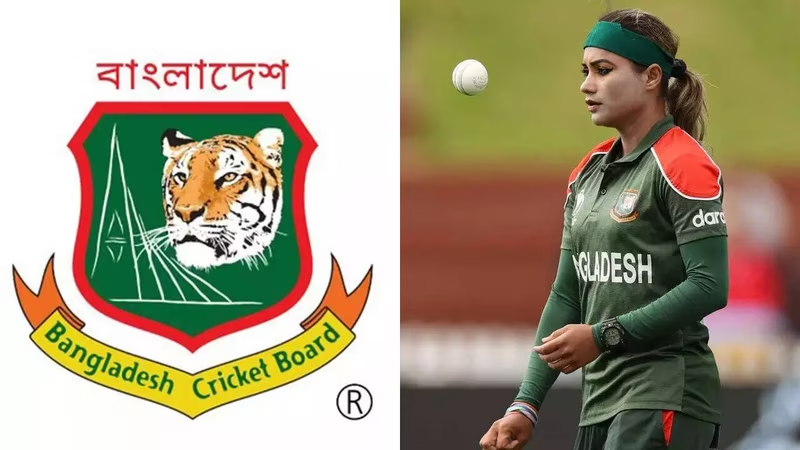Table of Contents
- A Bold Accusation Rocks Bangladeshi Cricket
- Sexual Harassment Allegations: BCB President Responds
- The Investigation Underway
- Who Is Manjurul Alam?
- Why This Case Matters for Women’s Cricket
- Global Precedents and Cricket Governance
- Summary
- Sources
A bombshell has rocked Bangladesh cricket. Star fast bowler Jahanara Alam—one of the most prominent figures in the nation’s women’s cricket setup—has come forward with serious sexual harassment allegations against a former national selector. The ripple effect has been swift and significant: the Bangladesh Cricket Board (BCB) has launched a formal probe, four officials have been placed on special duty, and BCB President Aminul Islam has publicly declared a “zero tolerance” stance.
This moment could mark a turning point not just for Bangladesh cricket, but for athlete safety standards across South Asia. With the sexual harassment allegations BCB now under official scrutiny, the eyes of the cricketing world are watching closely to see if justice will be served transparently and swiftly.
A Bold Accusation Rocks Bangladeshi Cricket
Jahanara Alam, who has represented Bangladesh in over 70 international matches since her 2011 debut, detailed her experience in a formal complaint submitted to the BCB. She alleged that Manjurul Alam, a former member of the national women’s selection committee, engaged in repeated inappropriate behavior, including unwelcome advances and coercive conduct during team camps and selection processes .
Speaking anonymously to protect her identity during preliminary discussions, another player corroborated parts of Jahanara’s account, suggesting a pattern of misconduct that may extend beyond a single incident. These revelations have ignited urgent conversations about power imbalances, accountability, and the psychological safety of female athletes in a system where selectors often wield unchecked influence.
Sexual Harassment Allegations: BCB President Responds
In a decisive public statement, BCB President Aminul Islam left no room for ambiguity. “We have zero tolerance for any form of harassment,” he declared. “No individual—regardless of their position or past contributions—is above the law or our ethical standards.”
This strong stance is a notable shift from past responses to similar issues in regional cricket boards, where complaints were often dismissed or handled internally without transparency. The phrase “zero tolerance” has now become the official mantra of the BCB’s crisis response, signaling a potential cultural reset within the organization .
The Investigation Underway
To ensure impartiality, the BCB has constituted a three-member internal inquiry committee. Its mandate is to review all evidence, interview witnesses—including Jahanara Alam and the accused—and submit a final report with recommendations.
As a precautionary measure, four BCB officials who were in administrative or oversight roles during the alleged incidents have been placed on “special duty,” effectively removing them from their regular responsibilities pending the outcome of the probe .
The committee is expected to complete its investigation within 30 days, though extensions are possible depending on the complexity of testimonies and evidence gathering.
Who Is Manjurul Alam?
Manjurul Alam served as a selector for Bangladesh’s women’s cricket team between 2018 and 2022. While not a high-profile public figure, his role gave him direct influence over player selections, training camp inclusions, and national team composition—positions of significant power in a resource-constrained sporting ecosystem.
As of now, Manjurul Alam has not issued a public statement. He is presumed to be cooperating with the investigation, though his legal representatives have reportedly been notified.
Why This Case Matters for Women’s Cricket
This isn’t just about one allegation—it’s about systemic change. Women cricketers in developing cricketing nations often face layered challenges: limited contracts, fewer support staff, and less media scrutiny, which can create environments where misconduct goes unreported.
Jahanara Alam’s courage in speaking up could inspire others to come forward. It also puts pressure on boards like the BCB to implement robust safeguarding policies—such as mandatory ethics training, anonymous reporting channels, and independent oversight bodies—modeled after best practices from organizations like the International Cricket Council (ICC) and Safeguarding in Sport initiatives.
[INTERNAL_LINK:womens-cricket-safety-policies-global-comparison] could provide valuable context for how Bangladesh’s response stacks up against global standards.
Global Precedents and Cricket Governance
Recent years have seen similar reckonings in other cricketing nations. In 2021, England’s cricket board (ECB) launched an independent review into historical misconduct following athlete testimonies. Australia strengthened its integrity unit after multiple complaints surfaced across its domestic leagues.
These precedents underscore a global trend: cricket’s governing bodies are increasingly expected to act not just as sports administrators, but as guardians of athlete welfare. The BCB’s handling of the sexual harassment allegations BCB case will be judged against this evolving international benchmark.
Summary
The Bangladesh Cricket Board is facing its most serious governance test in recent memory. Following sexual harassment allegations by national team star Jahanara Alam against former selector Manjurul Alam, the BCB has launched a formal investigation, placed four officials on special duty, and publicly committed to a “zero tolerance” policy. With a three-member committee now reviewing the case, the outcome could redefine safety protocols and accountability mechanisms in Bangladesh women’s cricket for years to come.
